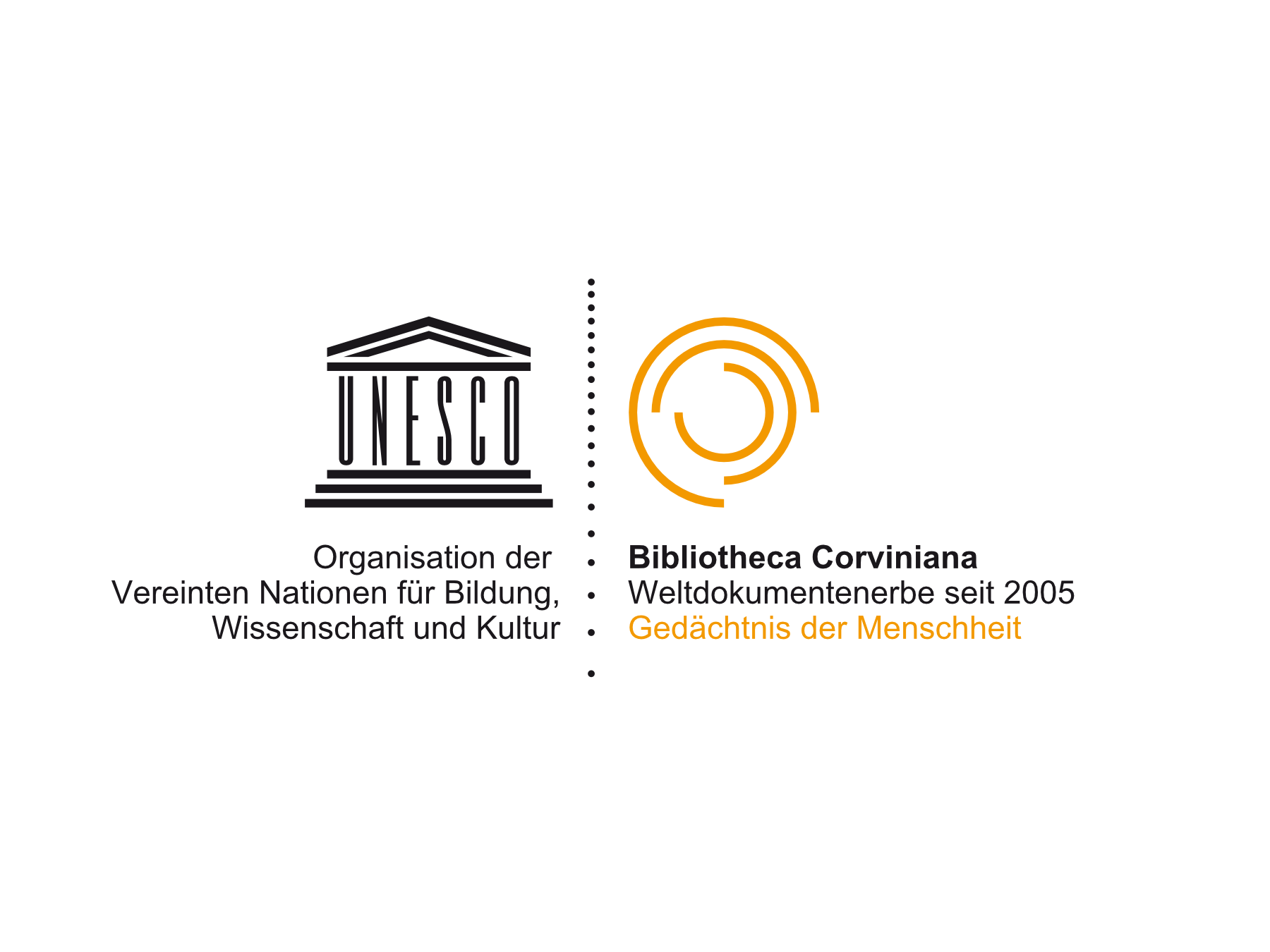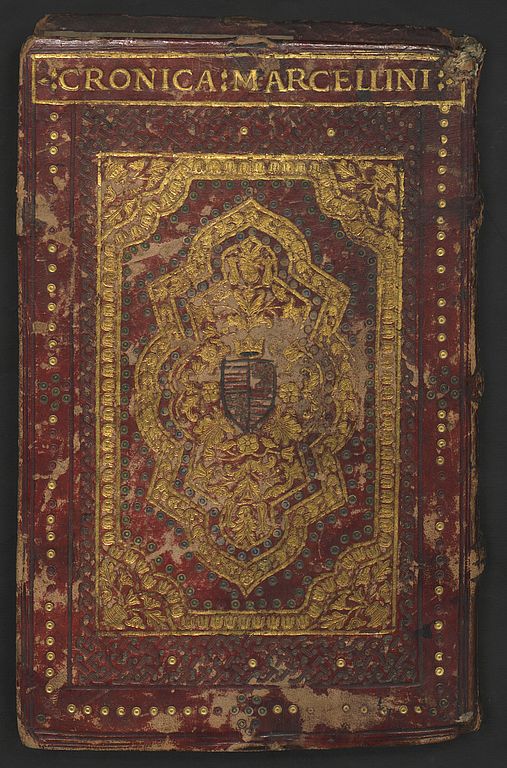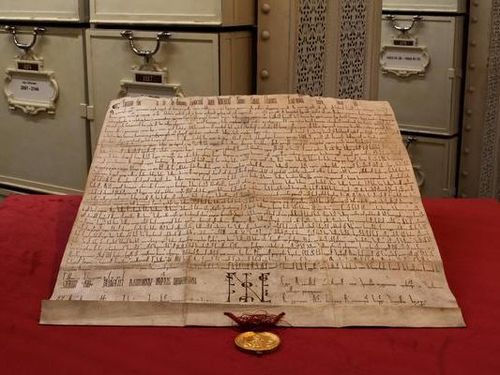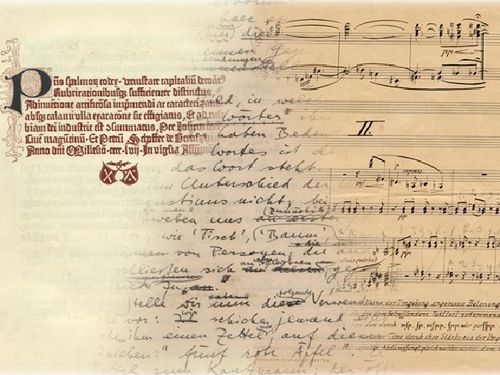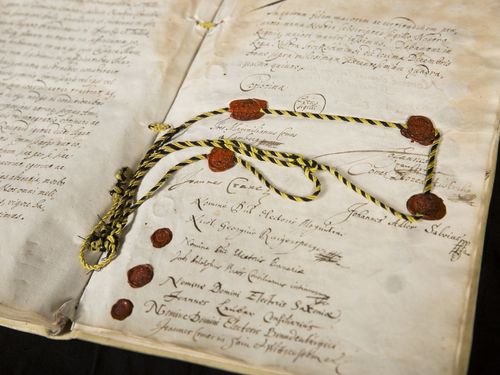The Bibliotheca Corviniana, which belonged to the Hungarian king Matthias Corvinus, was the second-largest collection of books in the Renaissance era. As a comprehensive collection, it included copies of the most important works of the time, alongside antique texts.
In line with the zeitgeist of the Renaissance, the Hungarian king Matthias Corvinus (reign: 1458-90) decided to create a collection that would bring together the knowledge of antiquity and the early modern era. To achieve this, books were produced in his own workshop and copies were exchanged with and acquired from other ruling families. According to a contemporary report, the library in the palace in Buda was made up of two large halls and divided into Greek and Latin writings (cf. The Realm of St. Stephen, London 2002, p. 154).
Several scripts from the antiquity, Middle Ages and Renaissance were collected and created a corpus of books that corresponded to the notions of the Renaissance’s humanistic zeitgeist. This includes works on literature, history, oration, theology, medicine, architecture and astronomy that were written in Latin or Greek. Of the 2,000 books in the Bibliotheca Corviniana, 216 codices, the so-called Corvinae, are currently known to have survived. 39 of them are stored in the Austrian National Library.
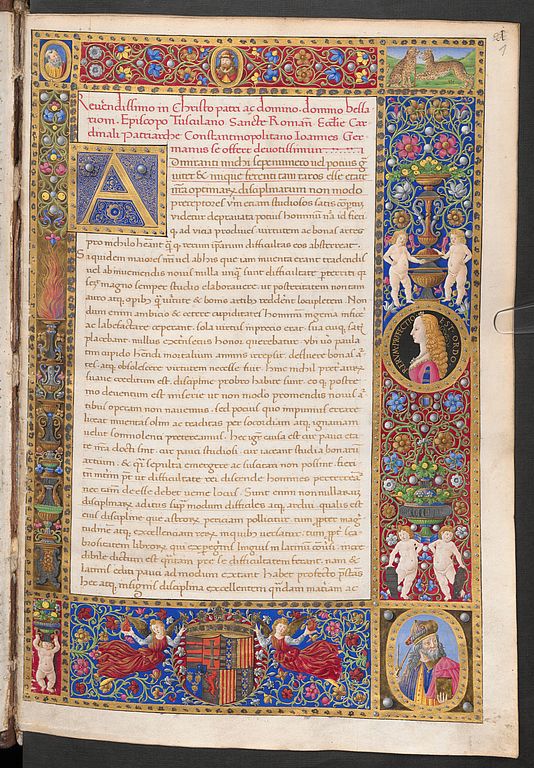
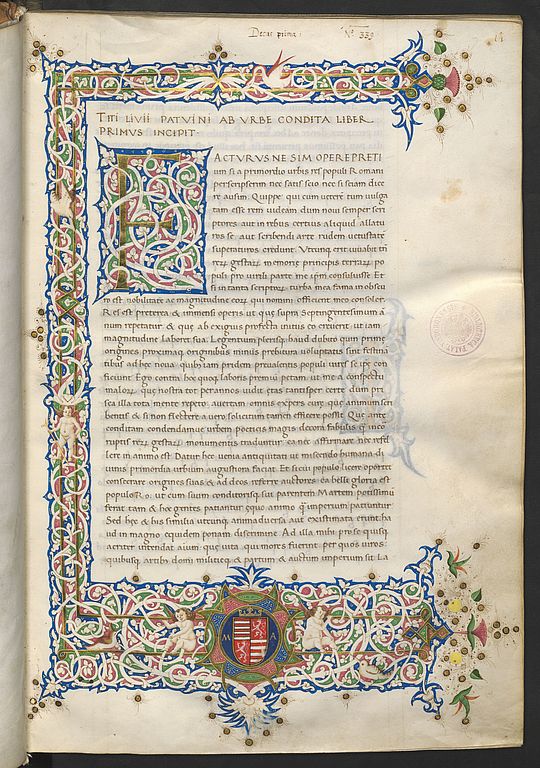
Global significance
In its entirety, the Bibliotheca Corviniana reflects the zeitgeist of the Renaissance in all of its scientific, theological, artistic and philosophical aspects and emphasises the significance of bringing together ancient and humanistic works during the Renaissance in Europe.

